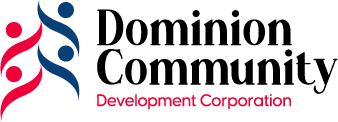Nonprofit corporations have a long and distinguished history of advocating for social justice and raising awareness worldwide because they utilize their resources and employ inventive change-making techniques. These groups can increase awareness of issues overlooked or ignored by larger organizations. Furthermore, organizations frequently provide critical services to those in need, including educational opportunities and advocacy for civil rights improvements. As society continues to struggle with inequality, inequities in healthcare accessibility, poverty, and other parts of the status quo, NGOs can play an essential role in bringing forth real change.
In this blog, you will learn how nonprofits advocate for social justice and how one can support their efforts in moving forward effectively. Examine how these nonprofits can make the public aware of important issues, encourage communities to take action, and advocate alongside them for solutions that may positively impact society and its justice.
Spreading Awareness Through Education
The core mission of nonprofits is to educate the communities regarding issues like social justice. Education sets the base for a needed change, and nonprofits use strategies to highlight marginalized communities’ challenges. Marginalization is societal, and this discrimination is based on multiple factors: gender, caste, racism, and more. These organizations do everything, from organizing informative seminars and workshops to planning and executing digital campaigns and resources.
DCDC is a nonprofit community development corporation that takes a localized approach to make sure its messages can positively impact its target communities. Nonprofits strive to foster understanding between individuals and societies. This kind of awareness and understanding inspires people to take an active part in improving the communities.
Advocating for Policy Reforms
DCDC engages in community-driven policy advocacy. Making sure that underprivileged people are heard. Policy advocacy is an essential way these nonprofits work toward social justice. Policy reforms are not as easy as they may sound; they are long, systematic processes that require legal attention and legislative and policy-level changes to create lasting solutions that work. These organizations must work closely with stakeholders, policymakers, and other advocacy groups to drive reforms regarding healthcare access, education, workers’ rights, and housing inequality.
These partnerships also close the gap between the governed and the policymakers, guarantee that reforms enacted are as effective on a larger scale as they are on a smaller scale, and that the benefits passed by governments are, in effect, reciprocal. These efforts are supported by Grassroots campaigns, public demonstrations, and petitions since they allow common citizens to fight for what they believe in.
Providing Direct Support and Services
In addition to advocacy and education, nonprofits are classified by their member benefit and direct service delivery. Nonprofit organizations deliver food and housing, mental health, education, childcare, employment, and legal help to families experiencing the negative effects of systemic oppression and barriers.
DCDC exemplifies this approach by presenting advocacy alongside action. They use programs to increase the capacity of underprivileged groups and solve important problems of today’s society, such as unemployment, poor financial management, or lack of funds. Such endeavors also do more than satisfy immediate distress. Still, they are endowed with instruments that enhance their capabilities to enable them to live better independently, fostering a just society.
Building Community Alliances
A primary feature of nonprofit organizations’ work is the ability to unite people and form community coalitions. Social justice is not an individual effort, and nonprofits are particularly skilled at identifying stakeholders and community partners, including local leadership, other businesses, and community members, to work towards common objectives.
Through engagement in two-way communication and ultimately fostering group discussions, these nonprofit organizations enhance social connectedness, ensure people are in harmony, and encourage fighting against unfairness. These programs show how the strategies of creating a partnership can increase engagement for DCDC’s community. From community events to many volunteer-based undertakings, nonprofits focus on many possible individuals and groups within a community to amplify their impact.
Empowering Individuals to Take Action
One crucial element of nonprofit advocacy is the capacity of citizens to make changes in their societies. Social justice is a process in which organizations cannot act alone; rather, it needs people who are aware of the cause, energized, and willing to work for it.
The organizations help provide tools, resources, and stages for people to advocate for themselves. From the organizations, people are easily involved in these causes through volunteering services, donating, and embracing awareness campaigns. DCDC guarantees its programs are actionable and engages the community to participate in the change process, showing how anyone can contribute to a just society.
Supporting Nonprofits and Their Missions
Nonprofits are essential to advancing social justice but need support to stay in operation. Support from people, including monetary contributions, volunteer labor, and simply spreading their word, can greatly improve their jobs.
Donating to organizations like DCDC guarantees they can support such services and policy change while developing educational programs and advocacy. As stakeholders, people and companies can get involved in social causes and assist in getting the message to as many people as possible.
Conclusion:
Nonprofit organizations are essential to social justice campaigning because they bridge the gap between underprivileged communities and structural change. In addition to educating the public, they advocate for policy changes, offer direct assistance, and encourage people to take action. Businesses that combine activism with practical solutions that improve communities, such as Dominion Community Development Corporation, are prime examples of this effect.
The role of nonprofits remains more vital than ever. As we navigate an increasingly complex world, their work addresses direct challenges and lays the base for long-term systemic change. By supporting their efforts through volunteering, donating, or spreading awareness, we contribute to a collective movement toward equality and justice. Together, we can help create a society where everyone has the opportunity to thrive.



